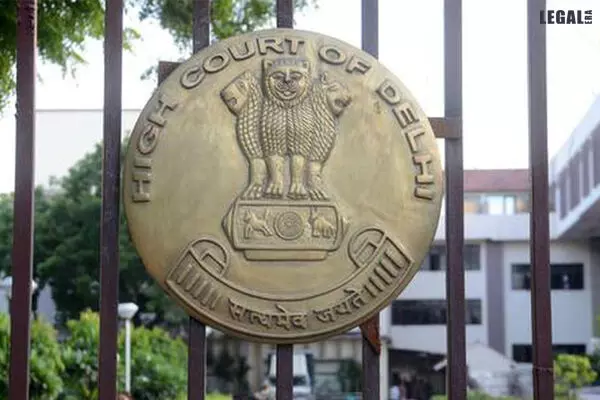- Home
- News
- Articles+
- Aerospace
- Agriculture
- Alternate Dispute Resolution
- Banking and Finance
- Bankruptcy
- Book Review
- Bribery & Corruption
- Commercial Litigation
- Competition Law
- Conference Reports
- Consumer Products
- Contract
- Corporate Governance
- Corporate Law
- Covid-19
- Cryptocurrency
- Cybersecurity
- Data Protection
- Defence
- Digital Economy
- E-commerce
- Employment Law
- Energy and Natural Resources
- Entertainment and Sports Law
- Environmental Law
- FDI
- Food and Beverage
- Health Care
- IBC Diaries
- Insurance Law
- Intellectual Property
- International Law
- Know the Law
- Labour Laws
- Litigation
- Litigation Funding
- Manufacturing
- Mergers & Acquisitions
- NFTs
- Privacy
- Private Equity
- Project Finance
- Real Estate
- Risk and Compliance
- Technology Media and Telecom
- Tributes
- Zoom In
- Take On Board
- In Focus
- Law & Policy and Regulation
- IP & Tech Era
- Viewpoint
- Arbitration & Mediation
- Tax
- Student Corner
- AI
- ESG
- Gaming
- Inclusion & Diversity
- Law Firms
- In-House
- Rankings
- E-Magazine
- Legal Era TV
- Events
- News
- Articles
- Aerospace
- Agriculture
- Alternate Dispute Resolution
- Banking and Finance
- Bankruptcy
- Book Review
- Bribery & Corruption
- Commercial Litigation
- Competition Law
- Conference Reports
- Consumer Products
- Contract
- Corporate Governance
- Corporate Law
- Covid-19
- Cryptocurrency
- Cybersecurity
- Data Protection
- Defence
- Digital Economy
- E-commerce
- Employment Law
- Energy and Natural Resources
- Entertainment and Sports Law
- Environmental Law
- FDI
- Food and Beverage
- Health Care
- IBC Diaries
- Insurance Law
- Intellectual Property
- International Law
- Know the Law
- Labour Laws
- Litigation
- Litigation Funding
- Manufacturing
- Mergers & Acquisitions
- NFTs
- Privacy
- Private Equity
- Project Finance
- Real Estate
- Risk and Compliance
- Technology Media and Telecom
- Tributes
- Zoom In
- Take On Board
- In Focus
- Law & Policy and Regulation
- IP & Tech Era
- Viewpoint
- Arbitration & Mediation
- Tax
- Student Corner
- AI
- ESG
- Gaming
- Inclusion & Diversity
- Law Firms
- In-House
- Rankings
- E-Magazine
- Legal Era TV
- Events
Delhi High Court Bars GAQM from Using “Certified Scrum Master” in Trademark Dispute

Delhi High Court Bars GAQM from Using “Certified Scrum Master” in Trademark Dispute
The Delhi High Court has barred UK-based certification supplier Global Association for Quality Management (GAQM) from utilising the trademark ‘Certified Scrum Master’ and its corresponding logo until the resolution of a pending trademark lawsuit filed against it by Scrum Alliance.
Justice C Hari Shankar held a preliminary view that GAQM’s mark and logo bear a deceptive resemblance to Scrum Alliance’s ‘Certified Scrum Master’ mark and its logo.
The Court was considering an injunction request by Scrum Alliance against GAQM, asserting that GAQM’s use of marks and logos closely resembled Scrum Alliance’s certified trademark (CTM), potentially confusing the certification services sector.
Scrum Alliance informed the Court that GAQM had voluntarily agreed in 2018 to modify its logo by darkening its colour and to include a disclaimer on its website explicitly stating that its services were not affiliated with Scrum Alliance.
Despite GAQM’s modifications to its logo and the inclusion of a disclaimer, Scrum Alliance remained dissatisfied due to the continued use of the term ‘Certified Scrum Master’ in the disclaimer, which GAQM had registered as its trademark. Consequently, Scrum Alliance sought recourse through the High Court.
Scrum Alliance asserted that their marks were identical to GAQM’s marks and were being employed in connection with identical services, targeting the same customer base.
“In contrast, GAQM asserted that its agreement to modify its logo’s colour and include a website disclaimer had been fulfilled. Based on this, GAQM maintained that a complete restriction on the use of the disputed marks was unwarranted.
GAQM additionally clarified that it was not representing itself as an affiliate of Scrum Alliance nor was it issuing certifications under the authority of Scrum Alliance. Furthermore, GAQM contended that Scrum Alliance lacked the exclusive right to grant certifications in scrum, a form of management optimisation.
In its analysis, the Court underscored that for an act to constitute trademark infringement, the infringing mark must be employed in the course of trade by an unauthorized party, bear a degree of similarity to the registered CTM that is likely to cause confusion among consumers and be used in connection with goods or services that are covered by the CTM’s registration.
Upon scrutinising the disputed marks, the Court determined that the textual differences were insignificant and the sun motif in both logos was comparable, establishing a prima facie case of infringement.
Consequently, while the Court allowed GAQM to use the word mark “CSM” in light of its registration, the Court issued an interim injunction prohibiting the use of the phrase “Certified Scrum Master” and its corresponding logo. The Court scheduled further proceedings for December 15.
Scrum Alliance was represented by Advocates Anirudh Bakhru, Yashwardhan Singh, and Vijay Laxmi, while GAQM was represented by Advocate Gagan Gupta.



